LATEST NEWS
I hope the oil lobbyists in Sacramento broke out some high-priced Champagne this weekend. They deserve it. They just scuttled the biggest and most likely-to-succeed effort in the history of California to save the planet.
Oil industry ad decrying what it called the “California Gas Restriction Act of 2015”
Senate Bills 350 and 32 had already passed in the upper house. As my Capital & Main colleague Bill Raden summarized, SB 32, authored by state Senator Fran Pavley (D-Agoura Hills), would “extend the greenhouse gas (GHG) emission reductions” achieved a few years back through Assembly Bill 32. Senate bill 350, introduced by Senate president Pro tempore Kevin de León (D-Los Angeles) – named after the threshold of carbon particles per million that our planetary life cannot surpass – aimed to set standards for California that would “double the energy efficiency of its older buildings,


Next spring, the U.S. Supreme Court will decide a case that could threaten the economy and American democracy. Friedrichs v. California Teachers Association asks the justices to consider overturning a 1977 Supreme Court unanimous ruling (Abood v. Detroit Board of Education) that protected the right of teachers, nurses, librarians, firefighters and other public workers to form unions. The Abood case emphasized that these workers act as the middle class’ backbone by providing quality public services and ensuring healthy communities.
In Abood, the Court ruled that every public worker who benefits from collective bargaining could be required to pay their fair share for those efforts. It’s a basic democratic principle.
For a preview of what will happen if the Court sides with the plaintiffs in Friedrichs, we should look at Wisconsin. In 2011,
» Read more about: The Supreme Court and "Friedrichs" — Lessons From Wisconsin »
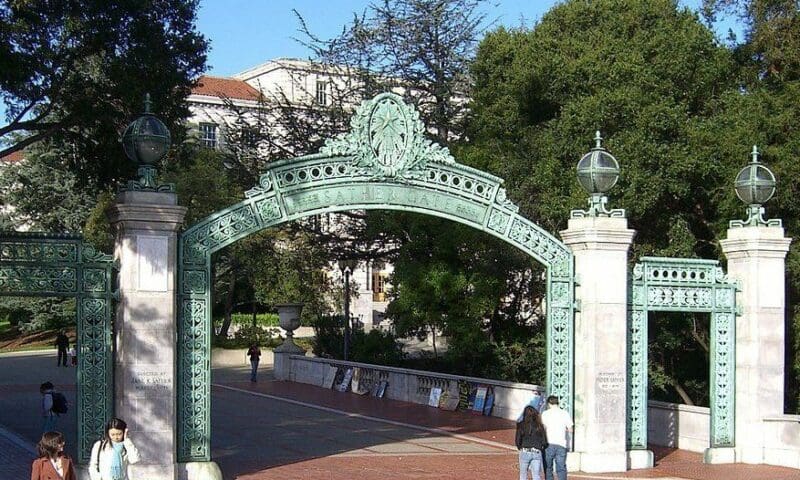

When California Governor Pat Brown helped create the modern University of California system in the early 1960s, he envisioned many things: a world-class structure of higher education, universal access to students from every background, a gateway to middle-class careers, cutting-edge research centers. All of that has come to pass, making UC an enduring part of Brown’s legacy.
One thing Brown did not foresee, however, was UC becoming embroiled in an emblematic fight over economic inequality, with critics charging that one of the nation’s most prestigious public institutions is perpetuating poverty.
The controversy over UC’s use of thousands of contract workers who earn low wages with few, if any, benefits has taken center stage in Sacramento, where legislation that would end such practices cleared the Legislature last week. The fate of Senate Bill 376, sponsored by state Senator Ricardo Lara (D-Bell Gardens), now rests with Pat Brown’s son,
» Read more about: Jerry Brown’s University of California Perma-Temp Problem »


Like a charismatic politician whose flaws have yet to be exposed, the so-called sharing economy enjoyed a meteoric rise to fame and success. Uber, Lyft, Airbnb — these companies emerged seemingly from nowhere to become economic and cultural powerhouses, and to challenge the prevailing structure of their respective industries.
But 2015 has not been as kind to Uber and its brethren, as the fascination with a new business model has given way to serious concerns over everything from public safety to worker exploitation to unfair market monopolization. In some ways this is not surprising — the honeymoon for startups can be notoriously brief.
But something larger is at play here. In the age of rampant income inequality, the overhyped promises of the sharing economy are running headlong into a growing desire by Americans for a caring economy.
There’s a reason why even Republican presidential candidates,
» Read more about: Uber and Airbnb: A 'Sharing' Economy for Whom? »


State lawmakers returned from the Labor Day weekend to face a potential Greek tragedy as the current legislative session enters its final days. Taking center stage is a contentious battle pitting the oil industry, the California Chamber of Commerce and a group of business-friendly Democrats against two history-making global warming measures.
Senate Bill 32, authored by Senator Fran Pavley (D-Agoura Hills), seeks to extend the greenhouse gas (GHG) emission reductions already achieved by Assembly Bill 32, a bill Pavley helped write as an assemblymember, and which became the state’s highly effective 2006 carbon cap-and-trade law.
Senate Bill 350 is the attempt by Senate President Pro Tem Kevin de León (D-Los Angeles) to spell out the “Golden State Standards 50-50-50” that Governor Jerry Brown unveiled in January’s State of the State address. It would require California to double the energy efficiency of its older buildings,
» Read more about: Sacramento Battle Over Historic Climate Change Bills »
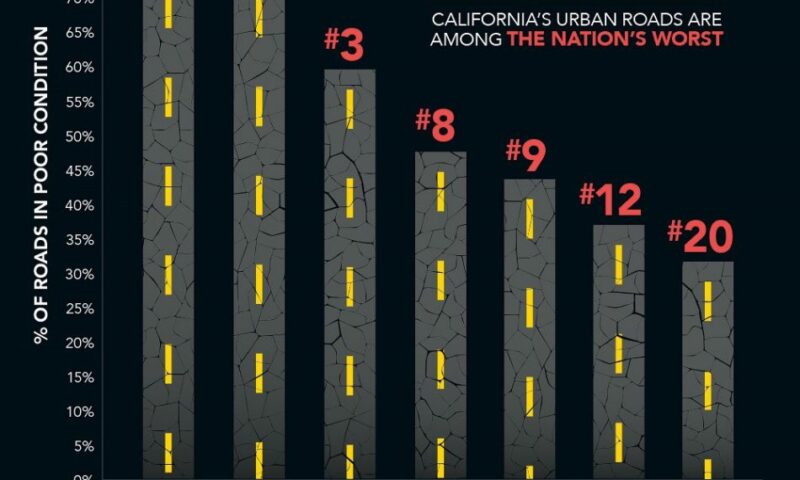

Lucy Dunn has a message for Republican lawmakers: Approve new revenue now to fix California’s decaying highway and bridge system or face severe economic consequences that will be felt throughout the state for decades.
Dunn is no big-spending liberal and you won’t find a Proud to Be Union bumper sticker on her car. In fact, she’s president of the influential Orange County Business Council and a card-carrying Republican. But to Dunn, funding long-neglected transportation maintenance and repairs is an existential issue for California’s business community.
“If you can’t move people and goods on safe roads and bridges, you cannot do business in the state,” Dunn tells Capital & Main.
California ranks 45th among the 50 states for overall highway performance.
This fundamental lesson was brought to urgent life in July, when a bridge collapsed along Interstate 10 during heavy rains,
» Read more about: Can a Business-Labor Alliance Save California’s Infrastructure? »


Disabled and elderly Californians have cause to worry as time marches forward to June 30, 2016. That’s the deadline for Governor Jerry Brown and state legislators to find a permanent solution to keep whole one of California’s largest assistance programs for the state’s most vulnerable populations.
For this fiscal year, a seven percent cut– $226 million–was restored to the In-Home Supportive Services (IHSS) program in June. But without solid funding for the future, nearly a million adults, children and their caregivers face losing hours of service and wages again.
The restoration of the cuts was a huge victory for consumers of IHSS’s services, according to Brandi Wolf, California policy director for the United Long Term Care Workers (ULTCW), “but living from year to year [involves] a tremendous amount of uncertainty. We can’t ask consumers to live in this uncertain world.” ULTCW, an affiliate of the Service Employees International Union, represents many IHSS workers.
» Read more about: Vulnerable Home Care Recipients Fear Losing Services—Again »


In 1936, during the throes of the Great Depression, FDR addressed a deeply divided and economically insecure nation on the eve of Labor Day:
“There are those who fail to read both the signs of the times and American history. They would try to refuse the worker any effective power to bargain collectively, to earn a decent livelihood and to acquire security. It is those short-sighted ones, not labor, who threaten this country with that class dissension which in other countries has led to dictatorship and the establishment of fear and hatred as the dominant emotions in human life.”
The parallels to what’s happening today are remarkable.
While the circumstances differ from now, the insecurity so many felt in 1936 is as strong as it was then. It exists across sectors. It exists regardless of geography. It exists because the wealthy few have reaped the rewards of our labor without sharing the prosperity.
» Read more about: This Labor Day Unions Remain a Beacon of Hope for Millions »
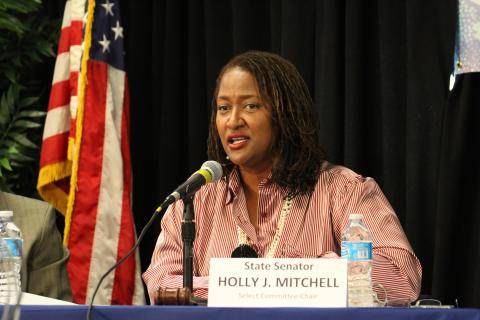

According to a Sacramento Bee story published today, California State Senator Holly Mitchell (D-Los Angeles) has dropped her campaign to pass Senate Bill 23, which would have repealed the Maximum Family Grant rule, a 20-year-old law that blocked state welfare services for children born to mothers who receive welfare. The Bee’s Capitol Alert story reported,
Mitchell’s bill is currently awaiting a vote on the Assembly floor, and she said she would instead push to get the policy into next year’s budget.
“How would we pay for it?” Mitchell said. “Because of the huge price tag, I’m going to continue working with the administration during the interim.”
Writing in Capital & Main, Judith Lewis Mernit recently described the Maximum Family Grant rule as “a relic of a 1990s-era conservative belief that women were deliberately having more babies just to rake in more benefits,
» Read more about: Holly Mitchell Drops Bid to Restore Child Welfare Cuts »


As the edge of summer burns into early autumn, students across the country are going back to school. Most are returning to friends and meeting teachers, but students at Illinois’ Barrington High School are arriving this year to signs that read, “Can’t live on $8.50,” and shouts of “Devuelvenos nuestros salarios!” (Give us back our wages!)
A majority of the school’s contracted janitors—organized by the Service Employees International Union—are striking because, after the Barrington school district renewed a contract with its employer in June, their wages were cut from $9.77 an hour. Already without sick days and health insurance, the janitors are now faced with even lower poverty wages.
As our publication, Making the Grade? Questions to Ask About School Services Privatization, discusses, school districts often don’t save money when they outsource support positions rather than keep them in-house. When contractors aim to maximize profit,
» Read more about: Outsourcing: Maximum Profits, Minimum Standards »


Though we tend to associate it with barbecues and retail sales, Labor Day is a holiday honoring the American labor movement. And an easy way to celebrate the movement that brought us the minimum wage, an 8-hour workday and an end to child labor is by buying Sam Adams, Doritos, and other union-made nosh for Monday’s get-togethers.
All the products listed below are made by unionized workers . You can find a more comprehensive list over at the website Labor 411.
Chips & Dip
Tostitos Chips, Salsas, and Dips
Mission Chips, Salsas, and Dips
Doritos
Cheetos
Fritos
Rold Gold Pretzels
Meat & Buns
Ball Park franks
Hebrew National franks
Oscar Meyer & Boar’s Head hot dogs
Sara Lee buns
Oroweat buns
Condiments
Heinz Ketchup
French’s Mustard
Vlasic (Relish,
» Read more about: A Labor-Friendly Shopping List for Labor Day »


For some people, renting a house or apartment in San Francisco is easy. If your gross pay adds up to $200,000 a year, for example, you might feel fine about sinking a third of this year’s salary into a bright, one-bedroom South Beach loft, or a two-bedroom loft with a view in the Castro District . On less money – say, around $100,000 in take-home pay – you could reasonably afford a Union Square studio, or a 550-square-foot studio for $2,800 in Pacific Heights. Even if you invest no more than a third of your income in rent (the traditionally recommended ceiling), you could live in a one-bedroom apartment in Ingleside, near the San Francisco State University campus. You would have options.
But say you actually work on campus — as a teacher, librarian or groundskeeper. Say you want to go to school there, and not have to commute more than a dozen miles in the morning.
» Read more about: San Francisco Professors and Students Face Staggering Rents »


A nationwide group of self-described small and independent business owners has joined the legal battle to appeal California’s landmark lead paint court ruling. But questions have arisen about the actions of the National Federation of Independent Business (NFIB), which, through its Small Business Legal Center, is part of an amici curiae (“friends of the court”) brief filed on behalf of the defendants in California’s 6th Appellate District Court of Appeal in San Jose.
Why is NFIB, which reports that most of its member businesses employ only three to five workers, going to bat for the case’s three multinational corporate defendants?
About 1.5 million homes in L.A. County built before 1978 probably contain lead-based paint.
In December 2013, Santa Clara County Superior Court Judge James Kleinberg ordered ConAgra, Sherwin-Williams and National Lead (NL Industries) to pay $1.15 billion to three California cities and seven counties,
» Read more about: ‘Mom and Pop’ Business Group Fights Lead Paint Ruling »


I’ve always thought that if the various Protestant denominations can be said to represent a socio-economic sector of American culture, then the people who made up the United Methodist Church (UMC) were the middle of the middle. I mean that across the country and particularly in this region, which includes Southern California, Methodists never wanted to be bothered about too much social or economic justice, and when they were it was a sign that even the center of the country was getting on board.
Arguments against divestment from fossil fuels parallel those against divestment from South Africa.
I can vividly remember when, in the early 1970s, the UMC in my region finally climbed on board the national grape boycott to support farm workers, just as I can recall when the Conference (as the regional body is called) decided to push for divestment in South Africa.
» Read more about: Climate Change and Oil Portfolios: Divesting in the Future »


Last week, in a powerful affirmation of the common good, commissioners in Tennessee’s Johnson County unanimously opposed the privatization of the state prison within their county’s limits. A response to fears that the state government could soon outsource management of the Northeast State Correctional Complex, the resolution reads like a checklist of what democracy and public control can provide a community.
The “no” vote was prompted by the state government’s recent exploration of outsourcing the management of state properties, including prisons, hospitals, parks and even the University of Tennessee. State officials have also been trying to manage a shortage of prison officers after introducing a controversial overtime policy statewide to cut costs.
But the Johnson County commissioners recognize that outsourcing isn’t the answer: “Any type of privatization would be detrimental to our county, citizens and staff of Northeast Correctional Complex.” They also honored public service by dedicating a day each year in recognition of the prison’s current staff.
» Read more about: Counties Say No to Privatizing Their Prisons »


A number of residents of the picturesque, alpine community of Mount Shasta, California are fed up with their big, new, imminent water hog of a neighbor, the Crystal Geyser Water Company. As Capital & Main reported earlier this year, a group of them have been calling for months for an environmental impact report (EIR) to measure the potential harm that the opening of a new local bottling plant may have on the region’s watershed. With the state in the fourth year of a historic drought, they argued that allowing a multinational corporation to extract precious California groundwater to manufacture and sell tea, soda and bottled water around the world is the height of recklessness.
On Monday, under the name of their nonprofit group, We Advocate Through Environmental Review (WATER), residents filed a complaint in Napa County Superior Court, the district in which Crystal Geyser’s corporate headquarters is located,
» Read more about: Mount Shasta Water Lawsuit: Message to a Bottler »
If L.A.’s landlords have their way, California’s ongoing drought woes could result in many renters having to foot the bill for their water usage. Owners are nudging city leaders to study a survey released in July by the landlord group Apartment Association of Greater Los Angeles (AAGLA).
The report claims that more than 86 percent of rental property owners in the city who pay for their tenants’ water have experienced an increase or seen no change in water usage since Governor Jerry Brown ordered mandatory restrictions in April. Landlords assert that renters have no incentive to conserve water because they aren’t paying for it, resulting in higher water costs.
Some tenant groups are crying foul, however, claiming that this proposal is little more than an attempt by landlords to use the drought to circumvent rent control laws. Los Angeles forbids owners of buildings constructed before 1979 to pass on water costs to tenants.
» Read more about: L.A. Landlords Seek to Put Tenants on the Hook for Water Bills »


If you try to play Monopoly with a two year old, you will not win.
Sure, you may be better at buying up property, building hotels and following rules about when to pass Go – good on you. But when the two year old decides he’s playing a different game, like Throw the Entire Board at the Adult, that game and its goals will absolutely trump yours.
Disruption went from Silicon Valley buzzword to cliché years ago, but it persists as an operational goal for countless tech startups and their investors. (See Judith Shulevitz’s excellent 2013 exploration of the term.)
We still see such supercharged words as reinvent, reimagine and revolutionize as investors search for the next “unicorn” – the term for a startup valued at more than $1 billion.
» Read more about: Do Unicorns Play Monopoly? Ask Uber and Amazon »
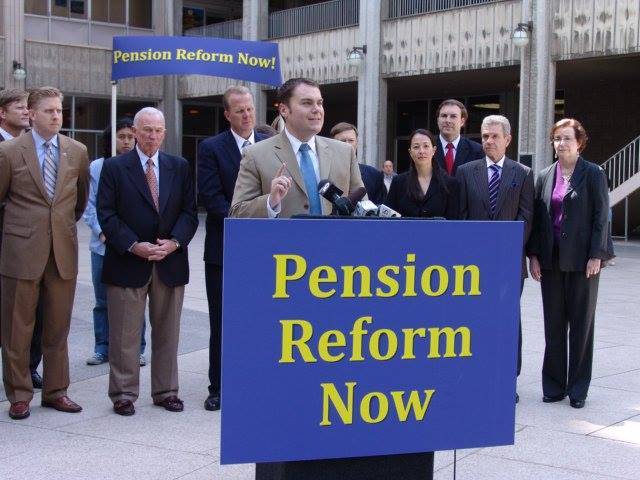
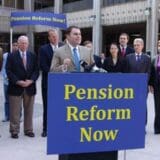
Backers of a proposed statewide ballot measure that would radically change the way wages and pensions of California’s government employees are formulated have begun an email campaign seeking pledges of support for the measure – as well as volunteers to circulate signature petitions when they become available in a few weeks.
The pension activists have 180 days from August 11, the date Attorney General Kamala D. Harris assigned a full title and ballot summary to the measure, in order to qualify it for the November, 2016 election.
Such email campaigns can help an initiative qualify for the state ballot if coupled with other efforts, Mike Madrid of Grassroots Lab, a Sacramento-based public affairs group, told Capital & Main by phone. “But if it is the only thing you are doing the chances for success are slim.”
In ballot-box politics, the bottom line is money.
» Read more about: Leaders of Pension-Cutting Ballot Proposal Look for Supporters Online »


As public officials across the country continue to manage shrinking budgets, experiments for funding public services are emerging. One new idea, the Social Impact Bond, has been advertised as a “win-win” for private investors and the public, but the reality is beginning to look a little different.
The results are in from the first SIB tried in the U.S. and it failed to meet its goals. The SIB was aimed at reducing the rate by which adolescents housed on Rikers Island returned to jail, with a goal of at least an 8.5 percent drop. Therapy was provided to inmates, but recidivism wasn’t significantly reduced.
SIBs are complex arrangements—private investors lend funding for a program and the government repays them only if certain goals are met. For the Rikers SIB, New York City was lent millions by Goldman Sachs, backed by Bloomberg Philanthropies.
Proponents of SIBs claim that,
» Read more about: Wrong Island: Why Are Privatizers Applauding Failed Prison Experiment? »